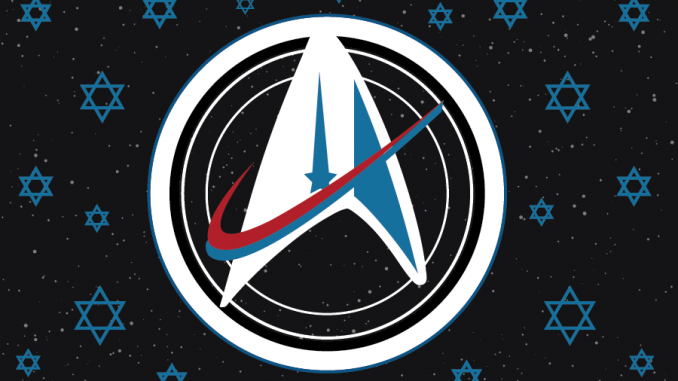
Growing up, I was referred to as “half-Jewish” and “half-Catholic” by family and friends, and for most of my life, I felt like I was half and half.
I underwent a small identity crisis in high school, feeling that I could not be both Jewish and Catholic, that these two sides of my family were too different and could not be reconciled. I struggled to divorce myself from my father’s faith and find a place in the Jewish community where I would not feel like an imposter.
Maybe this is why I relate so much to Spock from “Star Trek.”
“Star Trek” was created by Gene Roddenberry and first aired in 1966. The original series ran for three seasons and revolved around the exploits of Captain James Kirk, First Officer Spock and Doctor Leonard McCoy. They explored the galaxy, boldly going where no one had gone before.
I’d seen the Vulcan hand salute emoji and heard of the characters before, but I never found the time to sit down and watch it for myself until this past semester after some prodding from friends. I should have started it sooner. The acting and effects are cheesy, the props are obviously fake, but the characters are engaging and interesting.
One of my favorite characters is Spock, played by Leonard Nimoy. Nimoy was also Jewish and he played Spock as a Jewish character and was very vocal about how Judaism influenced his portrayal of Spock. The famous Vulcan hand salute was taken from a ritual he witnessed in synagogue as a child. Spock’s status as a constant outsider, even among his friends, is reminiscent of what it’s like being Jewish in a majority-gentile world — or in his case, starship.
His internal struggle between his human and Vulcan halves resonates strongly with me, even though I have more or less resolved my own crisis.
Like me, Spock is out of place. He is too stoic and unemotional for humans, but he is seen as too emotional and tainted by pure-blooded Vulcans. Despite the fact that, according to Jewish law, as long as someone has a Jewish mother they are counted as a full Jew, I too viewed myself as tainted and defective.
There are brief moments when Spock is able to be himself and express his human emotions with Kirk and McCoy. In these instances, I remembered when I saw my younger self being affirmed by my Jewish teachers and friends who gave me a taste of the community I was searching for.
Seeing my own troubles on screen, even though it is years later, is cathartic and vindicating. As a teenager, I was lost and lacked any sense of direction for how to go about discovering my own identity. Being able to see someone else, even if it’s a fictional character, go through the same struggles that I did lets me know that I wasn’t alone, even though it felt like I was.
But the references to Judaism in “Star Trek” don’t stop there. Jewish themes often crop up in episodes, like “The Enemy Within,” which was directed by Leo Penn, a Jewish man. The episode dealt with Kirk being split into a “good” Kirk and a “dark” Kirk. But the cast realizes that Kirk’s “dark” side is just as essential to who he is as his “good” side.
This mirrors the Jewish concept of the yetzer ra, selfish impulse, and yetzer tov, good impulse, perfectly. Kirk needs his “dark” side’s aggressiveness to function effectively as a starship captain just as humans need the yetzer ra to drive them to satisfy their needs.
Kirk’s “dark” side is kept in check by his “good” side, which demonstrates compassion. Likewise, the yetzer ra is kept in check by the yetzer tov, which drives people to do good and consider the moral consequences of their actions.
Furthermore, Spock’s logic versus emotion struggle also reflects divides within Jewish theology. Jewish sects have been struggling with this for centuries: the Besht sect, which later evolved in Hasidic Judaism, prioritized emotion and personal connections with God, whereas the Mitnagdim sect placed a heavy emphasis on studying and rules.
Judaism is woven into the very fabric of “Star Trek” and given how rare it is to see Judaism represented on screen in any capacity, seeing this level of care put into it, in one of the most iconic science fiction shows of all time, is both wonderful and affirming, as both an individual and as part of the larger Jewish community.



Be the first to comment